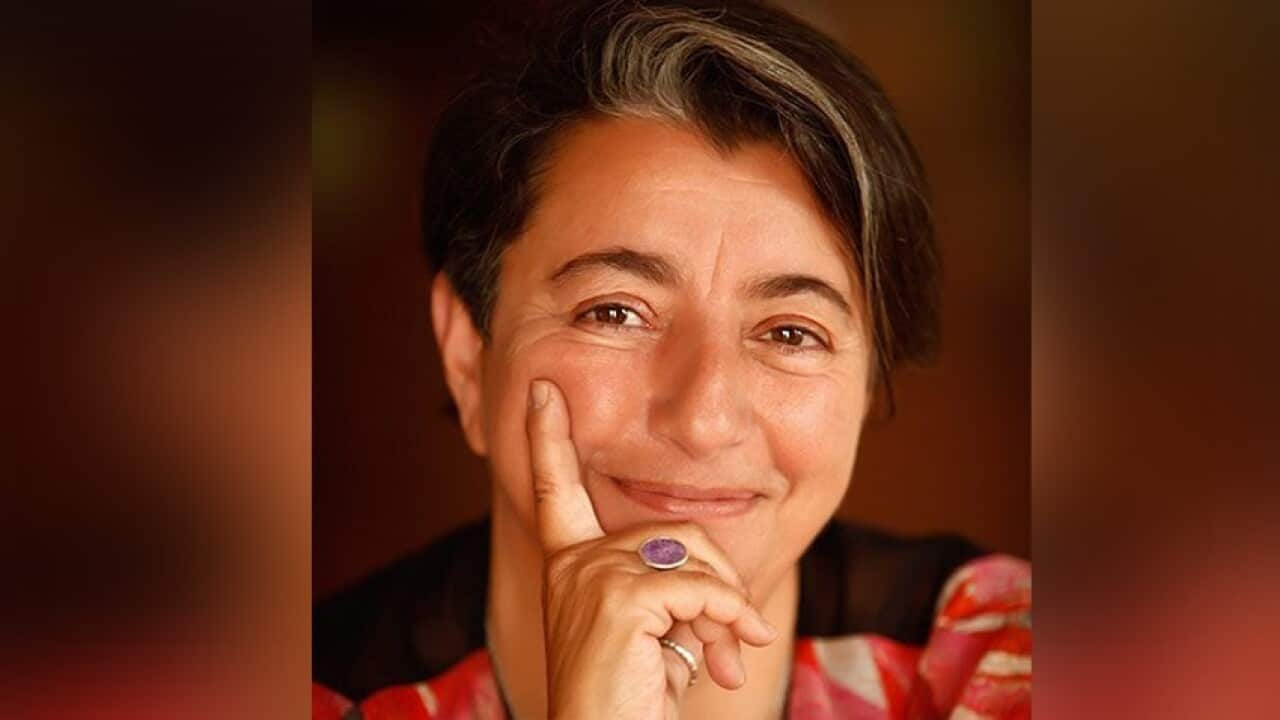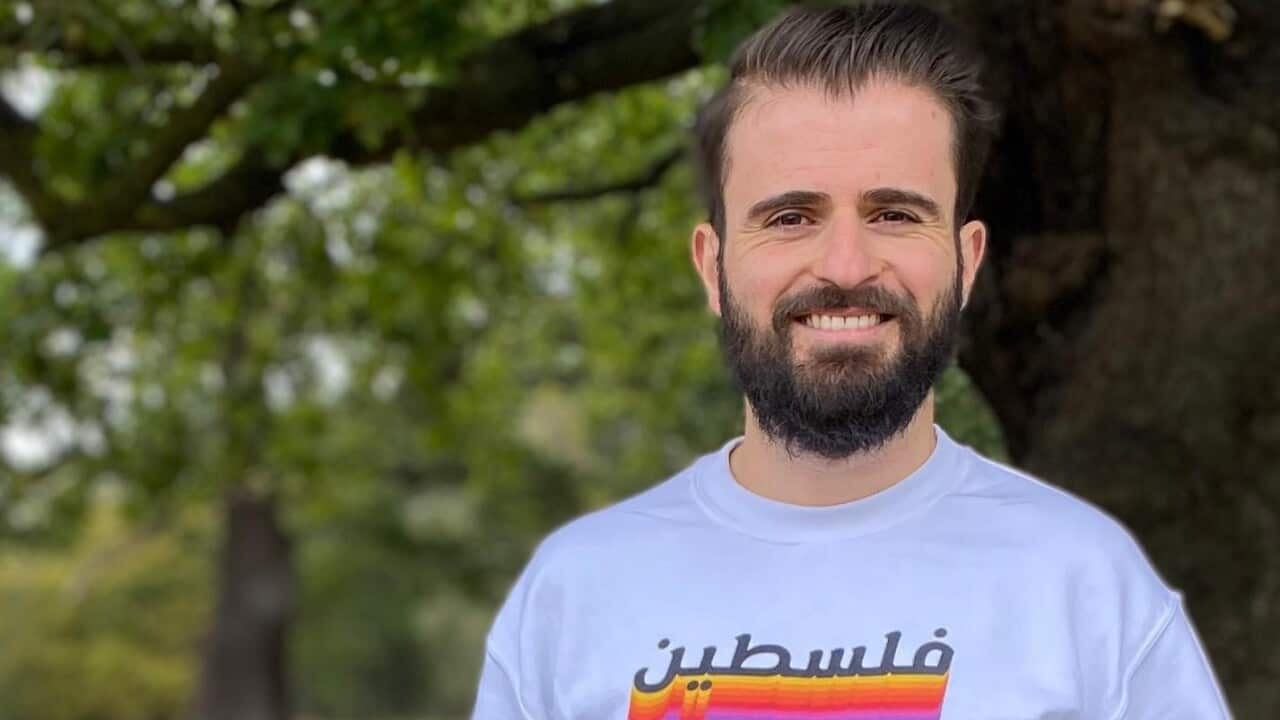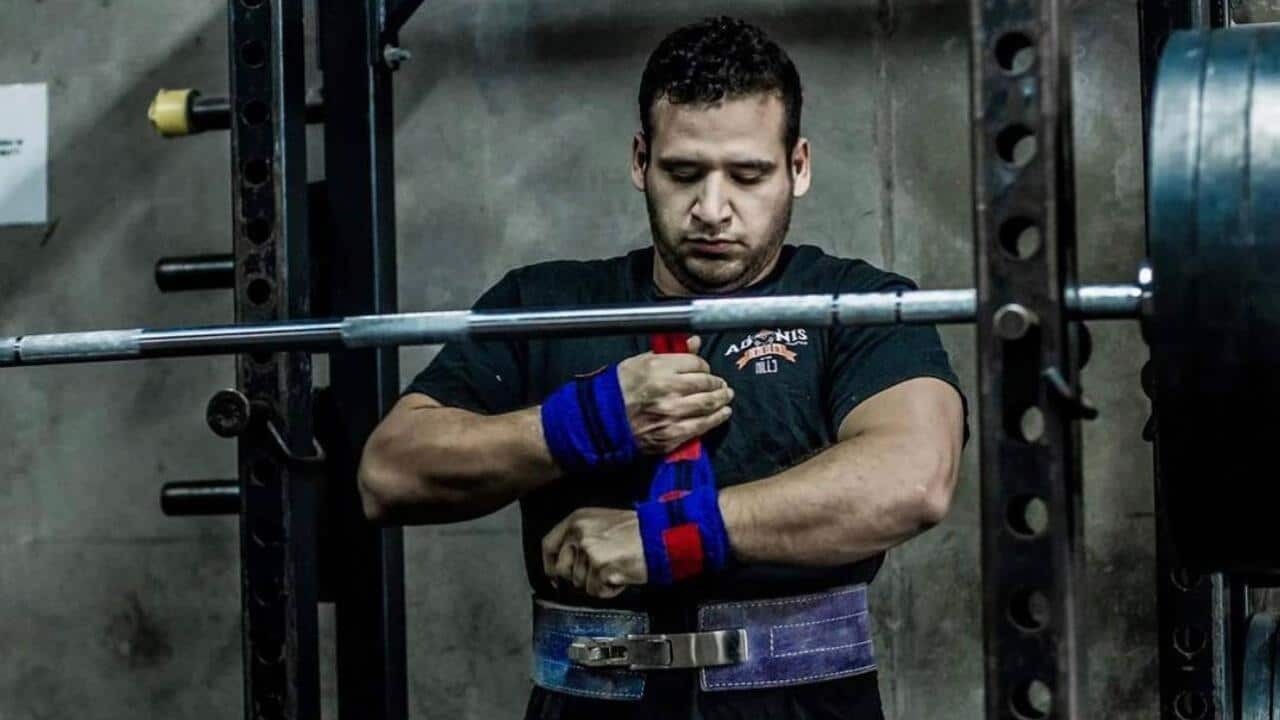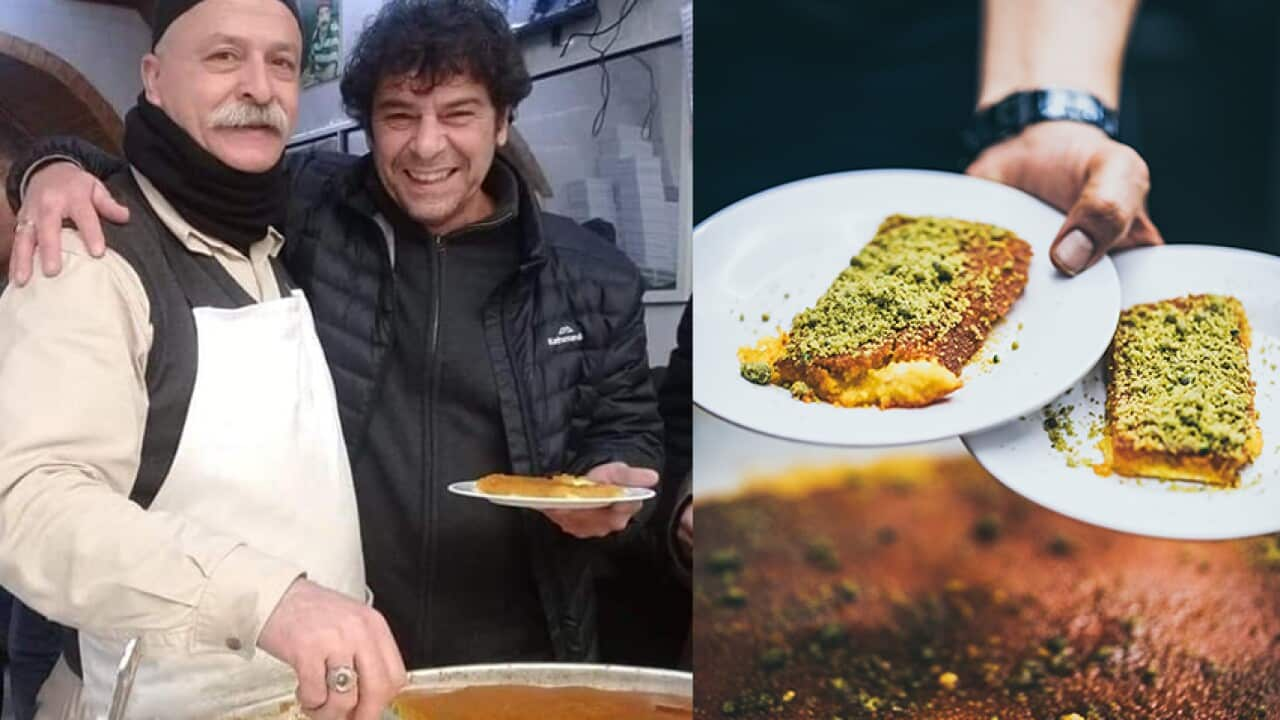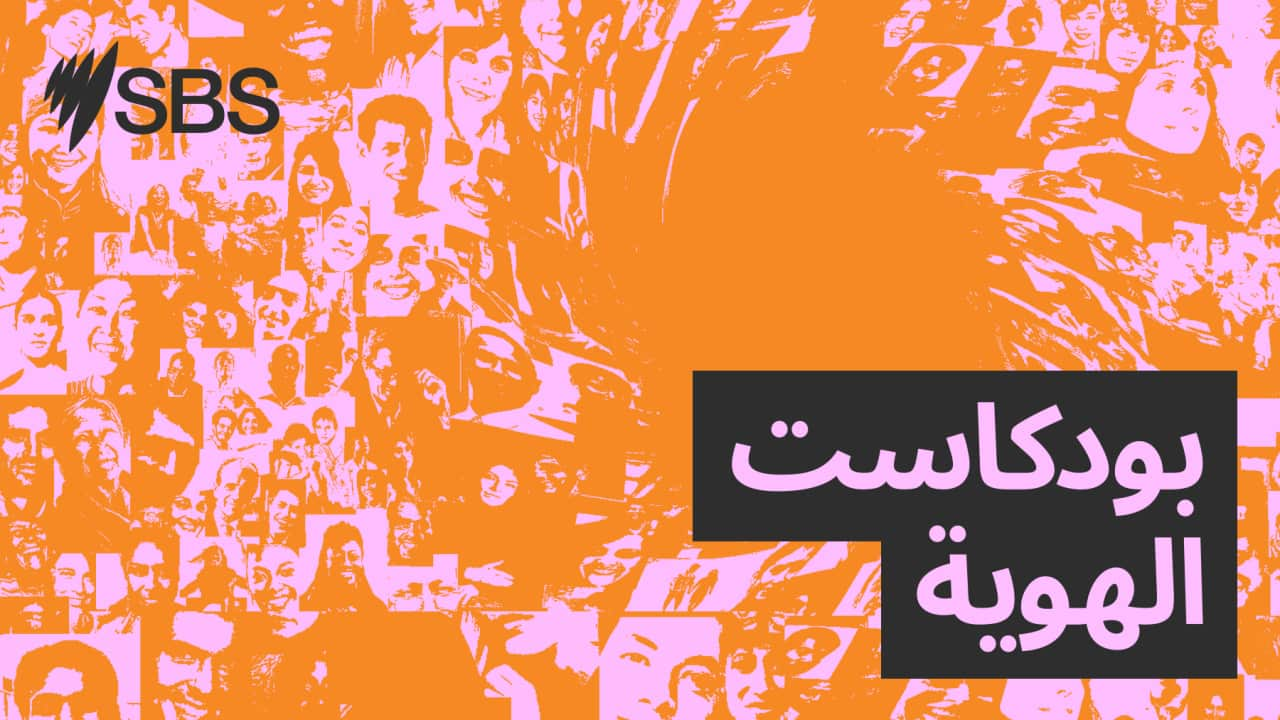Kareem* was born in Sydney, raised in a multicultural suburb and educated in the public school system.
He never felt pressured at home to speak Arabic or delve deeper into his family's religious beliefs, and his theological knowledge was limited to the traditions of the holy month of Ramadan and Eid.
“I knew that I was a Muslim, but I did not know much about the religion itself,” he tells SBS Arabic24.
During the 1990s, before he could enrol in a high school, his parents decided to move the family back to Lebanon.
"I remember at the time there was no war in Lebanon, but problems started in Sydney related to gang crimes and drugs and linking them to the Lebanese community.
“I do not know the main reason that prompted them to migrate, but perhaps they wanted to try life in Lebanon again."
His brothers had no say in the matter and recalls experiencing a fear of the unknown.
“I did not know anything about Lebanon, and I think it was the first time I got on the plane. When we got to the airport there, I saw members of the army standing everywhere carrying weapons as if they were in a war, which made me wonder, 'Why did we come back here?'”
Life in Lebanon during the 1990s, especially living in a village was different to life in Sydney. The village was divided into two parts.
"Islam and Christianity. During this period, after Lebanon's exit from the [civil] war, there was not much integration between Muslims and Christians and there was a lot of sensitivity between them."
Kareem and his family felt that his Arabic was too weak to attend high school, and he was forced to find a way to strengthen it.
"My father advised me to take lessons in the Arabic language and religion to strengthen it, and I really did that because I wanted to integrate and feel that I belonged in the society that was around me."
'Whoever created a Christian, Jew, Hindu or Buddhist will go to Hell?"
Bit by bit, he got closer to religion to understand his beliefs, those of his family, and the people around him.
"When I was 14 or 15 years old, I became very religious. I was studying religion and going to the mosque. At the same time, I was also in school, as I was before, loving science, biology and mathematics and excel in it. But I was thinking that I am part of a society, we are right and everyone else were wrong.
"I did not stay in this for long, perhaps for months or a year maximum. Until I started hearing discussions about other religions in a sermon, and I went to know what they meant from my family.
"I did not stop thinking about what I was hearing, and I wondered whether everyone who has created a Muslim will go to Heaven? And whoever created a Christian, Jew, Hindu or Buddhist will go to Hell?"
"All my ideas began to mix together. I could not put a logical or scientific analysis on the matter. When I asked a man of religion, he answered me, 'Yes, if you are not a Muslim, you will go to Hell'.
"This bothered me so much, why would my friends be burned in Hell forever?" No one could convince Kareem with their answers. He decided to occupy himself with other activities, and he and his friends created a community in which they felt comfortable together, away from sectarianism and religious discussions.
No one could convince Kareem with their answers. He decided to occupy himself with other activities, and he and his friends created a community in which they felt comfortable together, away from sectarianism and religious discussions.

Muslims are not at liberty to change their religion or become atheists, and to do so is punishable in some countries. Source: Pixabay
"I started feeling like there were no boundaries of hatred, and I told myself I shouldn't be part of this problem, maybe I should be part of the solution."
He completed high school moved to Beirut to study medicine.
"I met many people at university from different religions and sects. I began to see a lot of unnecessary discrimination.
"For me, we are all equal. Why differentiate between a Sunni, a Shiite, and a Druze?
"All the questions that puzzled me while in high school came to me again, stronger."
Life in Beirut, its openness and the study of medicine opened a new door for it.
"I became friends with gay and atheist people. During this period, I began to doubt existentialism. I began to think more about scientific issues as I studied medicine and diseases that afflict the human body."
Kareem did not find a convincing reason for the diseases that attack humans and leave them to suffer.
"My thinking began to turn towards agnosticism or atheism, and I was thinking that there is no one or anything to entrust us with, we live alone in this world."
During this period, Kareem's family returned to Australia, but he stayed to complete his university studies in Beirut. He began to turn away from religious beliefs and replaced them with a little bit of spirituality and a lot of humanity.
“I read a lot of scientific books and read the Qur’an and the Bible. I have always had a lot of respect for religions and religious people, but as a person, I was not able to integrate the beliefs that began to form in me with religion.”
In 2005, Lebanon began to feel the effects of deep-seated divisions, when Prime Minister Rafic Hariri was assassinated.
"I remember taking a taxi from those who charge 1000 Lebanese pounds for a single ride, and when he drove me to my destination, I paid him, and I walked away. The driver got out of his car and ran behind me and stopped me to say, 'Here's a thousand pounds, you paid me two thousand'.
"I was amazed and told him, 'It's okay take it'. He said to me, ‘No, this money is Haram (forbidden) for me, and I do not accept to feed my children with unlawful money’.

Salim Jamil Ayyash was given five live prison sentences over the 2005 Beirut attack that killed Rafik al-Hariri. Source: Anadolu
"I was shocked, a person like this is in dire need of money and is afraid to take it from me for fear of God. But the politicians in Lebanon who steal and plunder and live in comfort and luxury are not afraid of Allah's punishment.
"These things and injustice affected me a lot. There is a big mistake, there is no balance in this world."
Kareem was unable to find a satisfactory answer for the political corruption that speaks in the name of religion, and no answers that justify its ugly results in his homeland and the countries he loves.
"The last period I was in Lebanon, in the early 2000s, hatred and divisions began to reappear strongly.
At that time, if there was something that still brought me close to religion, what happened this year was the last straw.
‘How could you not believe?’
Kareem completed his medical studies and married a woman who shared similar beliefs and they returned to Australia.
Upon his return, his father was not yet aware of the beliefs Kareem decided to embrace. It was just a matter of time before he decided to confront his family with the truth.
My father used to tell me in more than one situation, read this verse, read this surah, and pray two rak'ahs.
"But one day I told him, 'Never tell me these things again because I really don't believe in religion at all'.
"He told me, 'How can you not believe?'
"I said, 'I have scientific thinking. For me, the world was formed after the Big Bang. I believe in human evolution and animal evolution. I could not relate these things to religion, and I tried a lot in my life, and I could not, and I am a person who does not believe in religion anymore'."
'He asked, 'How are you going to raise your children?'
"I said, 'I will leave them free to choose. They will read books and will be exposed to religion through you and their friends at school. The most important thing for me is that they have scientific analysis and critical thinking that is not subordinate to anyone. I don't want anyone to influence their way of thinking'."
His brothers also had questions.
"My brothers were not upset with me. They felt sad for me. In their thinking, I was going to Hell.
"I remember they asked me, how do I want to be buried. I told them I hadn't thought about this before. But if I go back to faith, I don't have a problem with the Islamic burial method. But this goes back to my thinking at the time. But now, I don't have a plan."
Despite their different ways of thinking, Kareem and his family members remain close.
Kareem has two children and, as he had previously told his father, he decided to leave room for them to choose whether they belong to one religion. Nevertheless, he made sure to enrol them in a school that teaches the Arabic language, as he was keen to introduce them to their cultural roots, which he is proud of.
"My son used to come home and ask us, compared to his classmates, why we are not doing this and that. We explain to him. But this year, he has grown older and wiser, and year after year he feels more comfortable with his way of life.
"He will certainly face a lot of challenges, of course. But we have the option to change the school at any time."
Despite Kareem's pride in and belonging to the Arab culture, and his respect for the religions and beliefs of others, he does not find similar respect and acceptance from the Arab community in Australia. Therefore, he finds himself at times compelled to hide this aspect of his identity.
"Of course, this is a very difficult feeling. Because you are trying to pretend that you are another person around these people, and you feel that you are threatened and threatening to them at the same time."
"I wonder, is it difficult for me to get the same treatment and respect that I give them?"
He feels satisfied and comfortable that he is a better person because of the decisions he's made.
"I live my life in order to be a good human not because I want to enter Heaven or to stay away from Hell, but only because I want to be a better person. I teach my children to be humanists.
"I guess you don't have to believe in a god to be a good person."
*Not his real name

